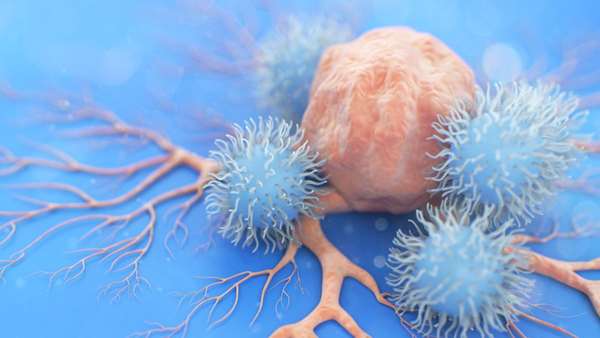Nkarta’s results add to evidence supporting the potential of therapies made from “natural killer,” or NK, cells, which are part of the body’s initial defense to infections and cancer.
In early-stage tests, these therapies, from Nkarta, Fate Therapeutics and academic centers, have driven certain blood malignancies into remission without some of the serious side effects typical of cell therapy. And as “off-the-shelf” treatments, they could broaden access beyond currently marketed cellular cancer medicines, which are personalized to individual patients. Still, the durability of NK cell treatments remains an unanswered question, as NK cells don’t last long in the body.
That narrative hasn’t changed yet. Nkarta’s initial results are within range of what’s been observed with the CAR-T therapies. Those treatments, like Gilead’s Yescarta and Novartis’ Kymriah, have established about a 70% response rate and 50% remission rate in B-cell lymphomas, according to industry analysts. Though total patient numbers are small and the follow-up short, NKX019 has generated a 71% response rate and a 57% remission rate among 14 lymphoma patients evaluated in the company’s early trial, which is meant to find a dose for further testing.
When they work, CAR-T therapies can generate lengthy remissions. Some 30% to 35% of the remissions in B-cell lymphomas last at least six months — a bar for next-generation cell therapies like NKX019 to match.
An Nkarta slide presentation showed two of the patients on the medium dose and one on the low dose progressed after about eight months of follow-up. The company indicated those patients are eligible for retreatment.
In an email to BioPharma Dive, CEO Paul Hastings said all of the relapses occurred in patients with indolent lymphoma and were “consistent with the post-relapse pattern of CAR-T cell therapy.” The company believes those relapses aren’t related to NK cell persistence, he said.
“We recognize the preliminary nature of these data and the standard caveats of clinical science still apply,” Hastings said on a Monday conference call with analysts. “But as early data go, we have reason to be optimistic.”
The company has reported only one instance of cytokine release syndrome, a common and potentially dangerous reaction to cell therapies, that was judged by investigators to be severe. Three other instances were more mild. That safety profile, which so far appears different than CAR-T therapies, has allowed Nkarta to test multi-dose regimens and consider re-treating patients who progress, Hastings said.
The data “remains directionally impressive,” wrote Stifel analyst Stephen Willey, adding that durability is still the “competitive barometer.”
Nkarta is testing NKX019 in more patients, such as those who previously received a CAR-T therapy, to prepare for pivotal trials. Those studies could begin in 2024, the company said in its presentation.
Nkarta shares climbed as high as 7% Monday morning, before falling back to trade down 5%. The stock has lost about half of its value since earlier results were disclosed in April.




ارسال به دوستان